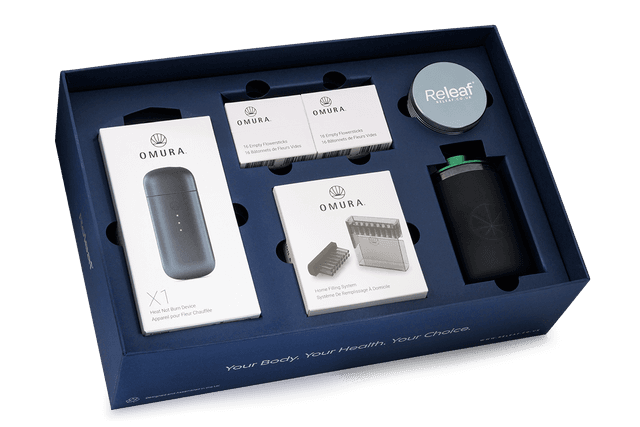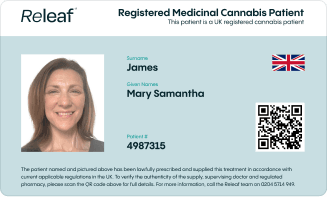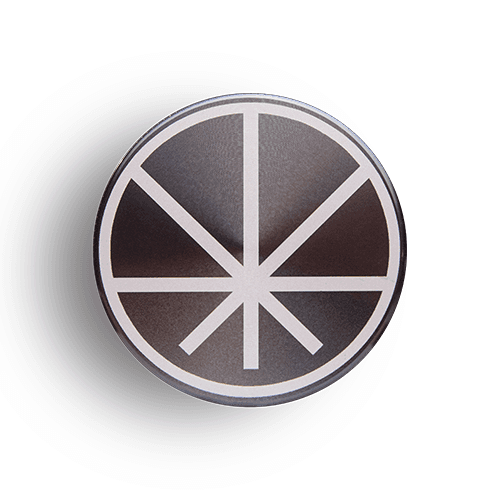Men play a dominant role in both the underground and legal cannabis markets in the UK, making up the majority of cultivators and distributors. Men are more likely to use cannabis, more likely to be punished by the law for cannabis and more likely to go to prison for cannabis. But on the flip side of that, men are also more likely to start a legal cannabis business, too - so what is it that makes men so attracted to cannabis?
Cannabis and the online male demographic
Stop the press! Cannabis is not such a taboo subject to discuss in public anymore, and cannabis information is a rabbit hole, providing an infinite educational experience - some even claim learning about cannabis is more addictive than the drug itself.
Podcasts with predominantly male audiences, such as The Joe Rogan Experience, openly discuss cannabis use, science, medicine, politics and culture with experts and social commentators, creating a sense of normality which was once considered impossible. With over 11 million people tuning into the show each episode, the audience these discussions reach is impressive - not in the least when someone like billionaire Elon Musk goes viral across social media for taking a toke of a blunt on the show.
Cannabis meme pages on Instagram can rack up millions of followers, posting visual content that many find amusing and entertaining. Much of it is based on comedy, spoofs and banter, but there is a small percentage that tries and makes things slightly more educational. The vast attention focused on one space leaves a lot of potential for companies and independent entrepreneurs to target consumers to buy their products.
Social media is not the place anyone sensible would recommend one looks to buy illicit drugs. However, a quick browse will show “vendors” pushing their products in groups linked to cannabis meme pages and thus exposing people to unregulated drug sales. Young and vulnerable people can and do access these pages, leaving them susceptible to scams.
Research conducted by University College London in a unique study looking at 10,000 people born in 2000 has shown that 31% of those under 17's had used cannabis, with 34% of males using cannabis compared to 28% of females.
Cannabis and health overview
Despite there being over 32,000 published medical studies on cannabis and its constituents, it is safe to say that a lot more research still needs to be conducted to understand how cannabis works in different situations and for different conditions.
That is not to say that studies to date fail to tell us a lot about the medical properties of this plant. Cannabis affects mammals because we have an endocannabinoid system (also known as our ECS). This is a network of receptors which are targeted by natural cannabinoid neurotransmitters, which is why the compounds in cannabis have an effect on us. More than that, though, the ECS acts as a regulatory system to most of your bodily functions, helping to create balance through homeostasis in your respiratory, reproductive, digestion and immune systems.
Delta 9 Tetrahydrocannabinol (THC) is the ingredient that makes you feel high and is the reason most people like consuming cannabis. Cannabidiol (CBD) is often less dominant than THC and it has been stated that it may soften the effects of it.
THC acts as an analgesic, making it a practical pain killer, and CBD has potent effects on inflammation as well as helping to regulate the immune system. Cannabigerol (CBG) is another cannabinoid which is noted to be beneficial in aiding recovery.
Full body scans show a high concentration of endocannabinoid receptors in the male reproductive organs - and sperm cells have a CB1 receptor (although they have no CB2 receptor), giving scientists insight into how cannabinoids play a role in fertility.
Cannabis use: Differences in the sexes
In 2016 a Washington State study asked 2,374 cannabis consumers to anonymously take a survey disclosing details of their cannabis use and habits. Of the sample group, 1418 were patients. The data showed that men used larger amounts of cannabis and consumed it more frequently than women. Whilst men reported using a wide range of consumption methods, mostly around inhalation, women were more likely to use cannabis in small doses in a pipe or orally, like edibles or a tincture.
Interestingly, men in this study were more likely to report an increased appetite, improved memory, increased enthusiasm, an altered time perception, and a perception of feeling more masculine after taking cannabis. On the other hand, women were more likely to have a loss of appetite and a greater desire to clean after taking cannabis.
Men are accessing medical cannabis prescriptions
Drug Science has tasked itself with collecting data from the increasing number of legally prescribed medical cannabis patients in the UK. So far, they have collected data from 3,682 patients, with 64.2% males in the study.
Drug Science’s data has shown that there is a higher percentage of male patients in the legal UK cannabis market, and this is backed up by data suggesting that men are (slightly) more open to trying cannabis.
In the report Say No To Pain conducted into cannabis by Releaf in 2023, participants indicated how likely they were to try medicinal cannabis, with 42% of men showing a willingness compared to 37% of women.
Similar data has been recorded in the UK and the US around men accessing medical cannabis, with two-thirds receiving a cannabis prescription identifying as male.
Research conducted amongst Illinois Medical Cannabis patients determined that men feel that they get higher levels of support about their cannabis administration from their specialist and primary care physicians compared to women. Interestingly, this study showed that men were more likely to continue using the same amount of cannabis after receiving a medical cannabis card, but women's consumption increased, at the same rate as a reduction in other prescription drug use. However, this only shows in the data for those women who felt they had the same support men from specialists that men reported receiving.
What can we learn from this? Well, it seems that there is less stigma towards male cannabis use, even in the legal, medical profession.
Physical fitness: Cannabis in sport?
Cannabis has garnered a reputation for making people lazy. Still, quite the opposite has come to light now that millions of adults across America, Canada, Thailand, Mexico and South Africa can freely consume cannabis in almost every way possible. Cannabis and sports may seem to mix well for some people, but that hasn’t stopped the wary eye on cannabis from athlete testing bodies worldwide.
Gym membership has steadily increased in the UK and is currently sitting at around 15%, with Pure Gym’s latest fitness report stating they have seen men returning to the gym more since COVID, with national statistics suggesting 63% of men maintain regular physical activity.
Around 35% of the population watch sports, with 70% of that audience being male. With social media and celebrity news sites knowing that cannabis content is click-worthy, it's a frequent affair to see a sporting idol sponsored by a CBD brand.
One of the significant changes which has come with medical cannabis laws being introduced is its acceptance as a prescribed medicine in (some) sports. In the US, Major League Baseball (MLB) treats cannabis use the same as alcohol, and the National Football League (NFL) decided in 2021 to only test once per year for THC at the start of the season, with failing athletes being given a fine rather than a lengthy suspension. The National Basketball Association (NBA) has also recently joined the NFL in allowing players to use marijuana.
The World Anti-Doping Agency (WADA) has considered the status of legal cannabis around the world, consulting sporting and medical professionals to determine if cannabis should be removed from the prohibited drugs list. Interestingly athletes must remain cannabis free when competing but are allowed to consume cannabis when they are not. The blood test limits have also been raised 10x from 15ug/ml to 150ug/ml.
THC consumption satisfies two of the three criteria to prohibit a substance at WADA. These are:
- having the potential to enhance sports performance, representing a health risk to the athlete;
- violating the spirit of sport.
Research has backed up the idea that cannabis can enhance performance when a study of 605 participants in western states of America was surveyed about their cannabis and fitness habits.
- 52% said it increased their motivation to exercise.
- 70% said it improved their enjoyment of exercise.
- 78% said it improved recovery.
CBD is not included on the WADA prohibited list and has become a go-to-favourite for sporting professionals, many of whom have launched their own brands by white labelling products from large corporate producers. CBD is believed by some to aid sports recovery with its anti-inflammatory neuroprotective, analgesic, anxiolytic, and pain reliever properties.
Weight lifters, boxers and UFC fighters have been leading the charge on this trend, with the likes of Lennox Lewis and Connor McGregor joining the ranks. The Nevada State Athletic Commission has just removed penalties for boxers and UFC fighters who consume cannabis. These athletes bring in millions of dollars due to their high-stakes entertainment value. Famous boxer Mike Tyson has attributed cannabis consumption to him turning his life around and becoming more compassionate. Social media fitness feeds are filled with 3-90 second videos of these male role models advertising their cannabis-based products between clips of exercise regimes.
The UK Anti-Doping Agency has warned athletes to take CBD at their own risk if they wish to pass THC tests, as some CBD products contain trace amounts of THC.
The FA Premier League has a ban on recreational THC, but Match of the Day pundit and former England and Arsenal striker Ian Wright has been candid about his early cannabis use. Wrighty admitted he used to smoke before match games up to the age of 21 when he narrowly escaped a drug test one day making him think twice about taking the risk moving forward. Whilst cannabis may not have detrimental effects on performance, being caught with it in your system can damage your career, potentially irreparably. Colleague Gary Lineker remains outspoken, calling for the government to legalise and regulate cannabis sales.
Mental health
Mental health awareness has become one of society's most active topic areas in the past decade. More male role models and prominent media figures are finding it easier to speak publicly about mental health and cannabis use,[RS1] which helps to make opening up more comfortable for everyone else. However within the area of mental health cannabis is seen as a double-edged sword, with scientists and healthcare professionals sitting on both sides of the fence over its potential negatives and benefits. Cannabis can help with anxiety, depression, and PTSD and help men feel more masculine.
Men are more likely to use cannabis at a younger age and more likely to become dependent on cannabis. Evidence suggests that men have a higher tolerance to cannabis, as women are more likely to become dependent sooner and are more likely to enter treatment at an earlier stage for cannabis use disorder than men.
When it comes to stopping cannabis use, men have a bigger chance of suffering from insomnia, vivid dreams, an increased sex drive and increased cannabis cravings compared to women who have increased nausea; stomach upset and anxiety withdrawal symptoms.
Women found stopping cannabis made them more irritable, restless, and angry, and they were more likely to report an emotional outburst during the last time they attempted to quit than men.
Since COVID, the consequences of the pandemic and lockdowns have started to be assessed. The Office of National Statistics data from 2019 to 2022 shows an increase of 8.9% of people accessing help for cannabis, and we have requested an FOI response to try and learn the specific difference between the sexes here.
Post Traumatic Stress Disorder is a condition that affects 3.7% of men and 4% of veterans. It is a condition that causes someone to relive a traumatic experience as if it was happening again and again. Homosexual men are much more likely to experience an event that results in PTSD jumping to over 25% (and it’s even higher at 30% for bisexual men).
Cannabis has been considered a lifeline for some patients suffering from this often debilitating mental health condition. A study in 2020 concluded that PTSD patients using cannabis were 2.5 times more likely to recover than those who did not. Patients with PTSD have a higher availability of CB1 receptors in the brain, which are believed to bring short-term relief to symptoms when stimulated.
PTSD is most commonly comorbid with depression and generalised anxiety disorders. The Priory says that 35.2% of men think they had a diagnosable mental health condition at some point, with a fifth of men diagnosed with mental health conditions confirmed by professionals. Three-quarters of registered suicide deaths in the UK in 2020 were for men.
A 2013 study among the US population where cannabis is legal indicated that in legal states, the suicide rate decreased by 5% among the general population. However, there is evidence to suggest that teen cannabis use is associated with a higher chance of suicide (though this is a correlation, and does not prove causation). In fact, people suffering with suicidal ideation may use cannabis to treat their symptoms.
Weekly alcohol use among men in the UK is around 57%, and this has been linked to worsening mental health and increased depression rates. Professor David Nutt at Drug Science said, "A regulated market for illicit drugs would be the best way, and we could reduce alcohol consumption by as much as 25% if we had the Dutch model of cannabis cafes," adding that "police would rather deal with people who were stoned than drunk".
Reproductive health
One huge area of debate regarding men's health and cannabis use is its impact on testosterone, and it seems this debate is still lacking conclusive evidence that would swing mainstream belief one way or the other. The uncertainty arises because different studies have shown different results. Polarisations in results may be down to the fact that cannabis is such a variable product from one strain to the next, which means each chemical makeup will have a range of different pharmacological influences on the consumer. Regardless, it is wise to be aware of the research conducted to make a more informed decision about how we use cannabis.
Recent studies show the endocannabinoid system is a key player in the complex process of male reproduction. One in six couples find it difficult to conceive a child, with the male being responsible up to 40% of the time. Traditional investigations into men's fertility have not found a solid reason to suggest how men become infertile, but recent studies into the endocannabinoid system of sperm have excited new understanding.
The Endocannabinoid system (ECS) activity and expression are markedly lower in infertile men compared with fertile men's sperm. Interestingly, another area that the endocannabinoid system is responsible for is the process of spermatogenesis.
Between 2000 and 2017, semen samples from men were collected, and a survey of their cannabis use was conducted. Half the men also submitted blood samples to test for reproductive hormone levels. Men who smoked cannabis showed almost 50% more sperm per ejaculation than non-smokers. The results were opposite to expectations, with only 5% of cannabis smokers having a low sperm count by WHO "normal" thresholds.
Sperm have CB1 receptors located in the head and middle, and male reproductive tracts expose sperm to endocannabinoids. CB1 activation by endocannabinoid anandamide decreases sperm motility and inhibits capacitation-induced acrosome reaction, which is how the sperm prepares for fertilisation, helping to penetrate the ovum. They also affect Sertoli cell activities, Leydig cell proliferation and germ cell differentiation.
Strangely, THC has been shown to lower testosterone in some studies, have no effect in other studies and have a slightly increased level in yet more studies. Whilst the jury is still out on which doses and frequency of cannabis use are positive and which are detrimental when it comes to testosterone, we do know that chronic use can contribute to lower testosterone release. This can lead to smaller testicle size and reduced levels of circulating free testosterone.
THC & testicular cancer
Cannabinoid receptors CB1 & CB" are abundant in the male reproductive system. One unique medical condition that men can suffer from is testicular cancer, and around 2,300 men are diagnosed each year in the UK, making up 1% of all male cancer diagnoses. It affects men mostly between the ages of 15 and 35. A 42-year study into the relationship between cannabis use and testicular cancer was conducted in Sweden, and there seems to be a negative correlation between chronic cannabis use and being diagnosed. Another study backed this up with results suggesting there is a 50% increase in testicular cancer with over ten years of cannabis use.
There are three main types of testicular cancer, and two of them are located in the place where sperm are created. Spermatocytic Seminoma, usually found in older men and Classical Seminoma in younger men, makes up 95% of diagnoses. Symptoms can cause numbness, pain, swelling, and fluid build-up. THC and CBD can help with these symptoms to reduce inflammation and reduce pain. Where cannabis becomes most helpful for testicular cancer is if treatment involves chemotherapy, radiotherapy or surgery. THC can help reduce nausea caused by the treatments, and CBD may also be helpful for speeding up recovery times. Please note that for this kind of cannabis treatment, it is best to speak to a medical professional.
Prostate & pot
Prostate health is also something that only men have to think about taking care of. Prostate cancer is the biggest cancer among men and the second biggest cause of cancer deaths. A 2005 study into the effects of CB1 & CB2 activation showed increased apoptosis (cell death) in prostate cancer cells with other positive biomarker reductions associated with the potentially fatal diagnosis. This has helped make cannabis a strong consideration for targeted agents against prostate cancer.
Treatment for prostate cancer goes beyond just the potential for treating the tumour; cannabis has been shown to improve quality of life whilst reducing the need for opiate-based pain medication, especially in the case of prostate cancer that has metastasised to the bone.
Discrimination in the face of the law
Men are the largest demographic to use cannabis in the UK and the most likely to face punishment for cannabis offences as well as the most likely to go to prison for it. In 2019, 853 people were in prison for cannabis-related crimes in the UK. Specific data breaking the incarceration numbers down by gender are not yet available through FOI have been submitted.
Higher rates of male inmates for cannabis may be because men are less worried about the stigma associated with cannabis use and therefore see the law as less of an inhibiting factor when deciding to try cannabis or include it in their lifestyle. Our advice is to always be aware of the laws surrounding cannabis before you decide to use it. You may qualify for a legal prescription if you have a medical condition.Releaf understands that medical cannabis can be life-changing for many people. That's why we offer tailored monthly packages based on your cannabis prescription, specialist consultations for medical cannabis, and a unique medical cannabis card for protection.






